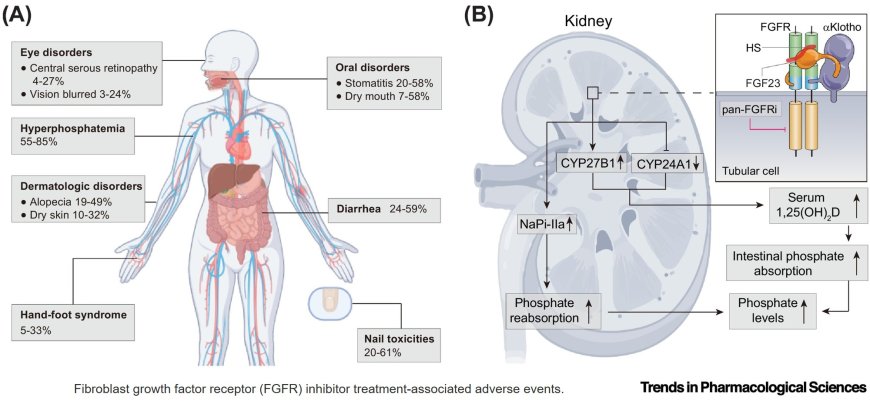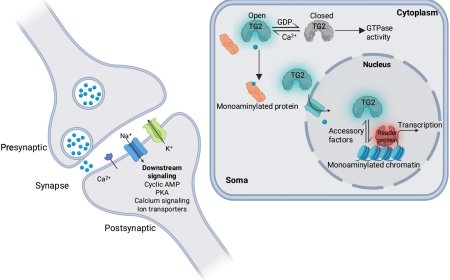Isoform-selective fibroblast growth factor receptor inhibitors

Several small-molecule pan-fibroblast growth factor receptor (FGFR) inhibitors have been approved for treating intrahepatic cholangiocarcinoma, urothelial carcinoma (UC), or myeloid/lymphoid neoplasms (MLNs) harboring FGFR alterations.
Secondary on-target FGFR resistance mutations – particularly gatekeeper and molecular-brake mutations – reduce efficacy of current inhibitors; pan-FGFR inhibitor-mediated FGFR1 inhibition induces hyperphosphatemia, necessitating dose reduction or treatment discontinuation.
Next-generation isoform-selective FGFR2, FGFR3, or FGFR2/3 inhibitors, which can overcome gatekeeper mutations with lower hyperphosphatemia risk, are emerging.
Novel approaches, including FGFR degraders or de novo-designed miniprotein agents, offer innovative therapeutic strategies with promise for FGFR2/3- or FGFR ‘c’ isoform-altered cancers.
https://www.cell.com/trends/pharmacological-sciences/fulltext/S0165-6147(25)00220-2
https://sciencemission.com/isoform-selective-FGFR-inhibitors












